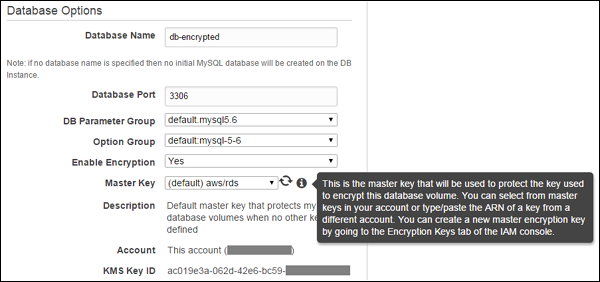Amazon RDS
About Amazon RDS
Amazon RDS Pricing
Amazon RDS is free to try, and users only pay for what they use.
Starting price:
$0.01 per month
Free trial:
Available
Free version:
Available

Most Helpful Reviews for Amazon RDS
1 - 5 of 210 Reviews
Justin
Information Technology and Services, 201 - 500 employees
Used unspecified
OVERALL RATING:
5
Reviewed May 2021
Amazon RDS User Review
Esra
Verified reviewer
Information Technology and Services, 51-200 employees
Used daily for more than 2 years
OVERALL RATING:
5
EASE OF USE
4
VALUE FOR MONEY
4
CUSTOMER SUPPORT
5
FUNCTIONALITY
5
Reviewed April 2019
Best managed relational database service in the market!
Choosing RDS was the best strategic decision we made. We saved a lot of time to focus on our company's growth instead of dealing with operations.
PROSWe have been using AWS RDS with MySQL since 2015. It is the best option we encountered in the market to set up, operate and scale a relational database in the cloud. Management Console is really easy to use. You can create, restore and scale any size of database in a matter of minutes. You should however be familiar with the technical term AWS uses. Be careful when you choose between General Purpose and Provisioned IOPS types. Multi-AZ feature is a life saver if you have a database that cannot tolerate any downtime. Point in time recovery saved us a lot. Also RDS takes automatic backups regularly. You should also try Amazon Aurora which is an engine compatible with MySQL and PostgreSQL. AWS built Aurora for itself and the underlying technology is mind blowing.
CONSYou should be careful with the price of Amazon RDS and keep an eye on CloudWatch and Trusted Advisor. It gets expensive depending on usage but still it is worth not to struggle with operational problems.
Anonymous
201-500 employees
Used daily for more than 2 years
OVERALL RATING:
4
EASE OF USE
4
FUNCTIONALITY
4
Reviewed April 2022
Simplifies a lot of database management work
Overall, Amazon RDS has been very useful to us. It has saved us tremendous amounts of time just in the provisioning, scaling, and maintenance activities alone.
PROSI like how easy it is to scale RDS up and down alongside its monitoring features which can be conveniently accessed via AWS console.
CONSThe burst balance limit for the underlying EBS disk gave us lots of problems. I wish this feature was more user-friendly.
Reason for choosing Amazon RDS
Our main tech infra runs on AWS already.
Reasons for switching to Amazon RDS
In my previous companies, we used to self-host databases (postgres, MySQL/MariaDB) in VMs. This was more expensive in the long run in terms of time spent. We also used Google Cloud SQL for some projects but eventually switched to RDS since our main tech infra runs on AWS.
Anonymous
11-50 employees
Used free trial
OVERALL RATING:
3
EASE OF USE
4
VALUE FOR MONEY
4
CUSTOMER SUPPORT
3
FUNCTIONALITY
4
Reviewed April 2018
Amazon RDS is really simple and lightweight.
Amazon RDS is really simple and lightweight. It is easy to use and scale up in the cloud. Easy to setup.
CONSI have not used Amazon Relational Database extensively, so I did not find any drawbacks forAmazon Relational Database.
Muhammad Arsalan
Verified reviewer
Information Technology and Services, 201-500 employees
Used daily for more than 2 years
OVERALL RATING:
4
EASE OF USE
5
VALUE FOR MONEY
4
CUSTOMER SUPPORT
5
FUNCTIONALITY
3
Reviewed June 2019
AWS RDS Review
My company need a simple and fast scalable solution for managing MySQL databases therefore we chose RDS. Prior to RDS we were managing DB clusters installed on VMs on Hyper Visors, and it was a cumbersome job. Though switching to RDS does make our life easy but RDS is not a cheap solution though.
PROSEasily Scalable as per need. AWS manage you infrastructure completely. Fast Disaster recovery if planned the architecture correctly. Multi AZ deployment and Read replica supported. Supported various DB services like MySQL, Oracle, SQL Server and Postgres. Backup procedure is very easy.
CONSCost on higher side. Lack of control on your DB instance, though it's good but at times you need some tweaking todo.
Reasons for switching to Amazon RDS
It was convenient for us to host DB on RDS than to managing a cluster.




